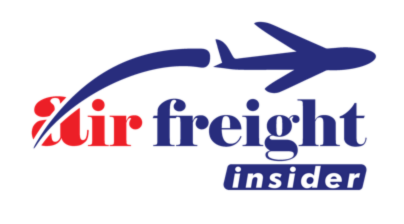Airfreight Insider Daily Briefing – June 26, 2025
Welcome to today’s edition of the Airfreight Insider Daily Briefing, your trusted source for the latest developments and trends in air cargo and aviation logistics.
Industry Giants Focus on Cost-Cutting and Network Expansion
FedEx announced plans to implement permanent cost reductions of $1 billion in fiscal year 2026, part of ongoing transformation programs DRIVE and Network 2.0. The company reported a 5% drop in net income for fiscal 2025, down to $4.09 billion from $4.33 billion the previous year, signaling pressures amid evolving market conditions. Meanwhile, DHL Global Forwarding marked a significant milestone by inaugurating its new airfreight hub at Frankfurt Airport after just over a year of construction, reflecting the company’s commitment to capacity expansion and efficiency improvement in Europe.
In parallel, the air cargo sector continues to witness a surge in strategic partnerships. Avianca Cargo Mexico is the latest to join a wave of collaborative efforts aimed at network development to secure volumes in an uncertain airfreight market. Similarly, Eurowings and Sun Express have launched a new codeshare partnership focusing on Turkey routes, enhancing connectivity and offering mutual benefits through shared flight numbers on select services.
European and US Airlines Reshape Fleets and Routes
Low-cost carrier Ryanair keeps expanding its European footprint with new winter season routes from Memmingen and Karlsruhe/Baden-Baden to Bukarest-Baneasa, tapping into growing Eastern European demand. At the same time, Delta Air Lines is reducing frequencies to Zurich and Geneva between August and October 2025, adjusting its European schedule amid shifting travel patterns.
On the fleet side, JetBlue is preparing to retire its Embraer E190 aircraft, with a final symbolic flight expected on September 4, marking the end of an era for the airline’s regional jet operations. Airbus continues to revolutionize the market with its A321LR and XLR models, offering cost-effective long-range point-to-point operations that are poised to reshape the traditional hub-and-spoke model and enable profitable low-cost long-haul services.
Regional Airlines and Special Operations Amid Geopolitical Tensions
The ongoing tensions in the Middle East have triggered urgent responses from specialized carriers. Cologne-based Leav Aviation conducted evacuation flights from Jordan to France and the Netherlands on behalf of Dutch and French governments, moving over 570 personnel in operations carried out with minimal notice — a testament to the agility required in today’s volatile environment. Similarly, Israel’s El Al announced plans to boost flights significantly to repatriate thousands of stranded passengers following the recent Israel-Iran conflict, lifting capacity caps per flight to accelerate return travel.
Environmental Initiatives and Regulatory Developments
Condor leads by example with its new “Round Up for the Future” initiative, enabling passengers to voluntarily round up their ticket price to fund additional sustainable aviation fuel (SAF) usage. All contributions directly support Condor’s SAF procurement, underscoring the airline’s push toward decarbonization.
Regulatory and policy arenas remain active: The European Parliament’s transport committee has passed a proposal to restore free cabin baggage allowances for all passengers, a move welcomed by consumer advocates but criticized by airlines worried it may lead to higher ticket prices and overhead costs. In the US, Democratic senators oppose the appointment of Bryan Bedford to lead the FAA due to his stance on pilot training rules—highlighting ongoing debates about safety regulation standards.
Back in Europe, Ryanair faced a setback as the EU General Court dismissed its lawsuit challenging state aid provided to Condor during the pandemic. This ruling, while favoring Condor, leaves room for further developments in the complex legal landscape surrounding coronavirus-era airline support.
Political Controversies and Industry Pressures in Germany and Spain
German airlines are calling for relief on high taxes and fees that they deem burdensome during an already challenging recovery phase. The German Aviation Association (BDL) has formally requested the halving of these levies ahead of talks with Federal Transport Minister Patrick Schnieder.
In Spain, scrutiny surrounds Prime Minister Pedro Sánchez amid allegations of a conflict of interest related to government support offered to Air Europa. Concerns focus on the possible financial benefit to his spouse through ties with the airline, prompting calls for an official investigation.
Today’s Takeaway
Cost discipline remains crucial for legacy players like FedEx as profitability pressures persist, while freight forwarders and airlines alike invest in expanding networks and new infrastructure. Partnerships continue to strengthen the fabric of air cargo connectivity, especially in uncertain times. Geopolitical challenges demand operational agility from regional and flag carriers, as they also face growing scrutiny on environmental commitments and regulatory compliance. For logistics professionals, adapting to shifting routes, fleet strategies, and political winds will be key to navigating the coming months.
That’s it for today’s briefing. Tune in tomorrow for our latest video update and more industry insights from airfreightinsider.com.
